Mental Health Under Fire: Frontline Psychologists in Wartime Ukraine
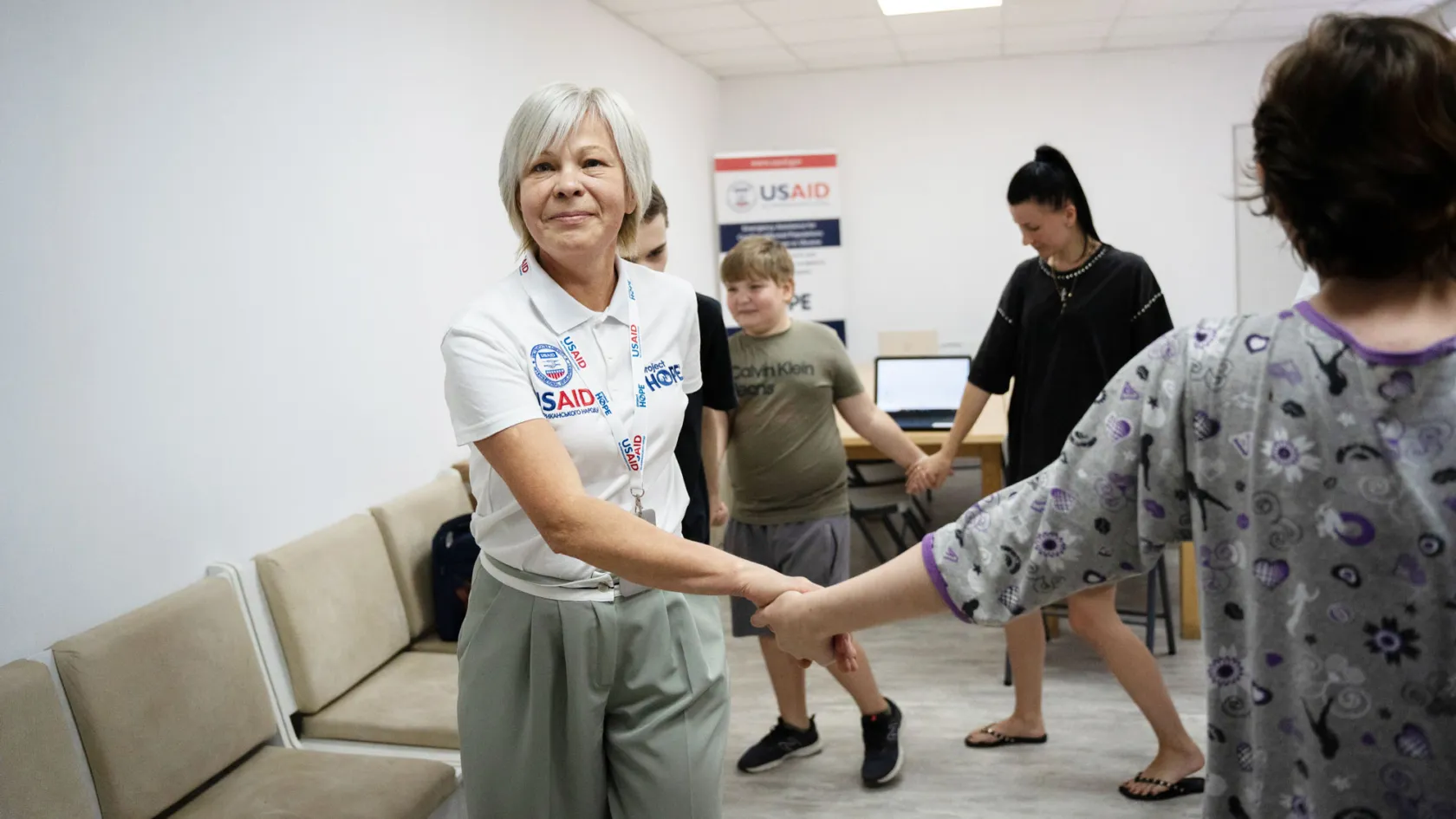
As Ukraine enters its fourth year of full-scale war, mental health is no longer a quiet topic — it’s a vital need. The war continues to impact millions and psychological support has become as essential as food, water, and shelter.
The World Health Organization estimates that nearly 10 million Ukrainians, including 1.4 million children, are suffering from mental health disorders triggered by the conflict, including post-traumatic stress disorder, depression, and anxiety. Frontline cities such as Sumy, Kramatorsk, Kherson, and Nikopol endure relentless shelling, missile strikes, and drone attacks, leaving residents in a constant state of fear and uncertainty. In Sumy, for instance, a recent missile strike resulted in the deadliest attack on Ukrainian civilians in 2025, killing 35 and injuring over 100.
Project HOPE’s psychosocial support centers serve as safe spaces where people can breathe, speak, and begin to heal. This Mental Health Awareness Month, we are highlighting the stories of four psychologists working in frontline regions. Their words reveal the deep emotional labor behind helping others — and how they find the strength to keep going.
“A psychologist is a quiet hero in the shadow”
— Iryna Besedina, Sumy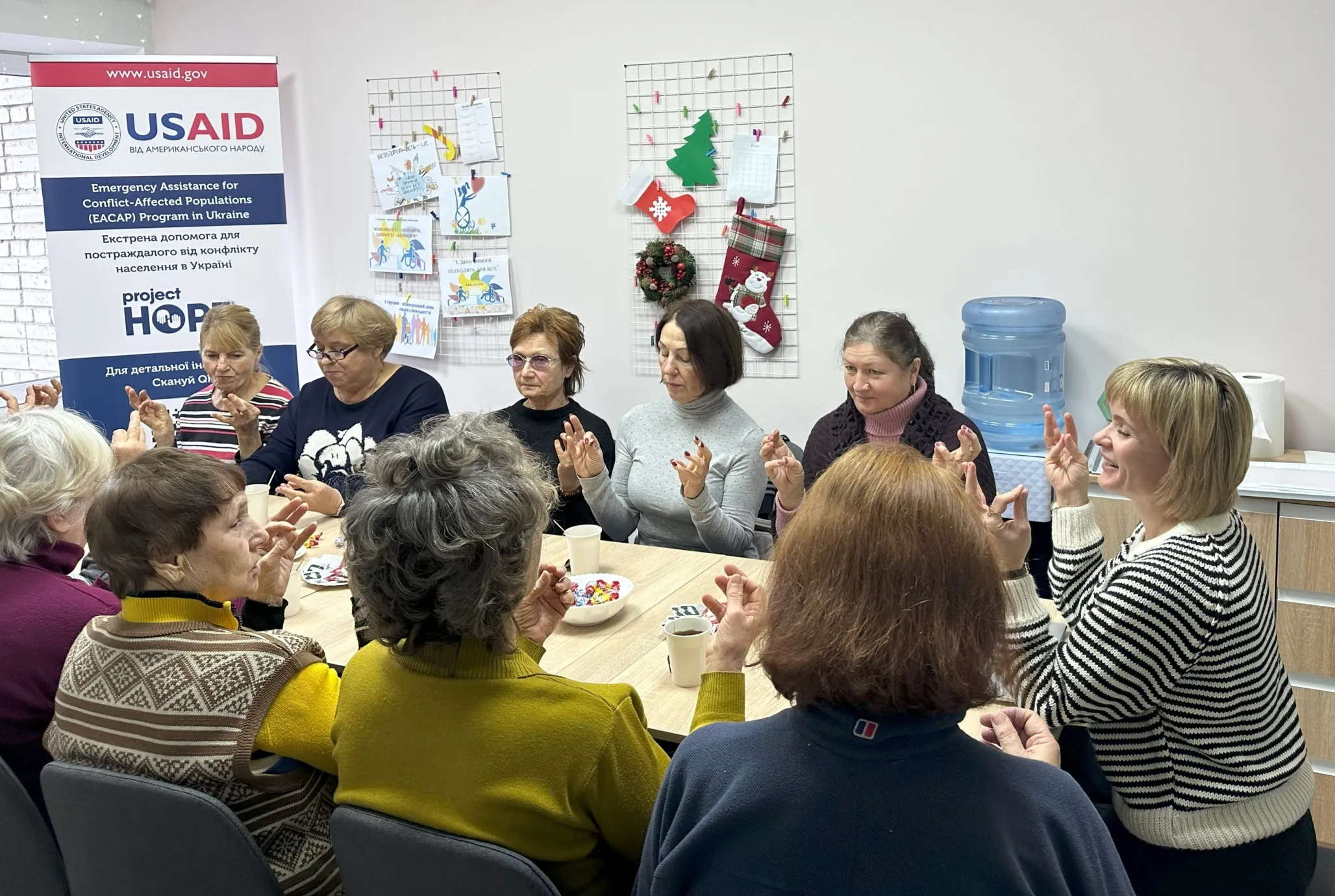
For Iryna, being a psychologist during war is both an honor and a profound responsibility. It means creating a space where people’s pain is respected, their dignity preserved, and no emotion is judged.
Her work is also a form of quiet resilience:
“To be able to teach someone to breathe when it feels like there’s no air—that’s what it means to me.”
To support herself, Iryna focuses on the basics: self-awareness, nature walks with her daughter, and moments of joy found in simple things.
“Finding your own sources of strength is a journey too—and every day, I take one step toward myself.”
“This work is not just support — it’s a shared path”
— Halyna Pankova, Kramatorsk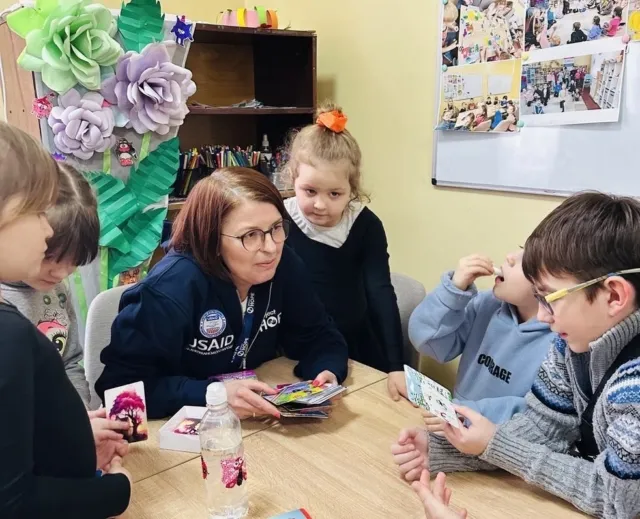
Halyna’s approach to therapy during war is shaped by the idea of the “wounded healer”— someone who has faced their own pain and, because of it, can truly be present for others. She emphasizes creativity and movement, both in her personal life and in her work with patients at the Project HOPE psychosocial center.
“Just like a child grows and heals through play, adults can rediscover joy and strength through creativity and physical activity.”
In her free time, she restores dolls and builds miniature dollhouses — small acts of beauty in a world that often feels broken.
“Mental health gives us the power to choose how we face life’s challenges”
— Olga Havrykova, Kherson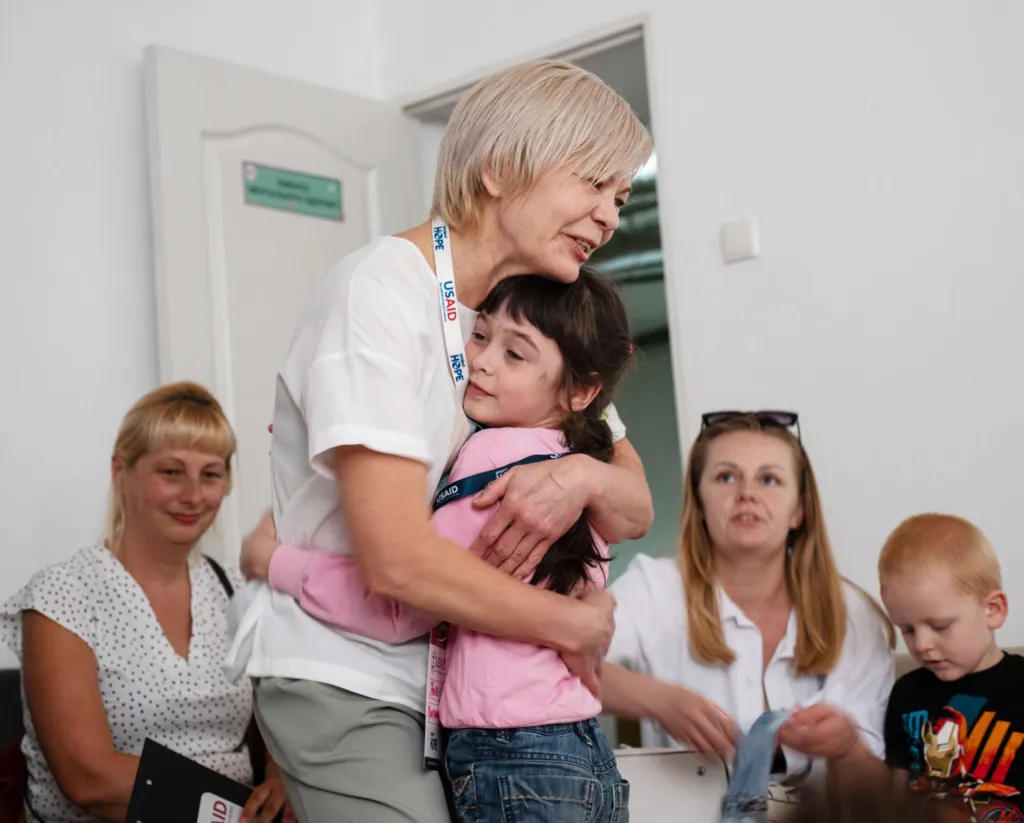
In Kherson, a city still on the frontline, Olga has lived through occupation and trauma alongside her community.
“Here, people are still being born, still living, still dying. Mental health is what allows them to choose how to respond to all that life throws at them.”
She calls herself fortunate to work in her hometown — a place she knows deeply, and where her skills are urgently needed. Her personal sources of strength are gratitude, mindfulness during runs, her supportive team, and the warmth of her loved ones.
“Even in hard times, I try to thank life, the people around me, and every circumstance that shapes my path.”
“Helping people not just survive — but live”
— Olga Shyts, Nikopol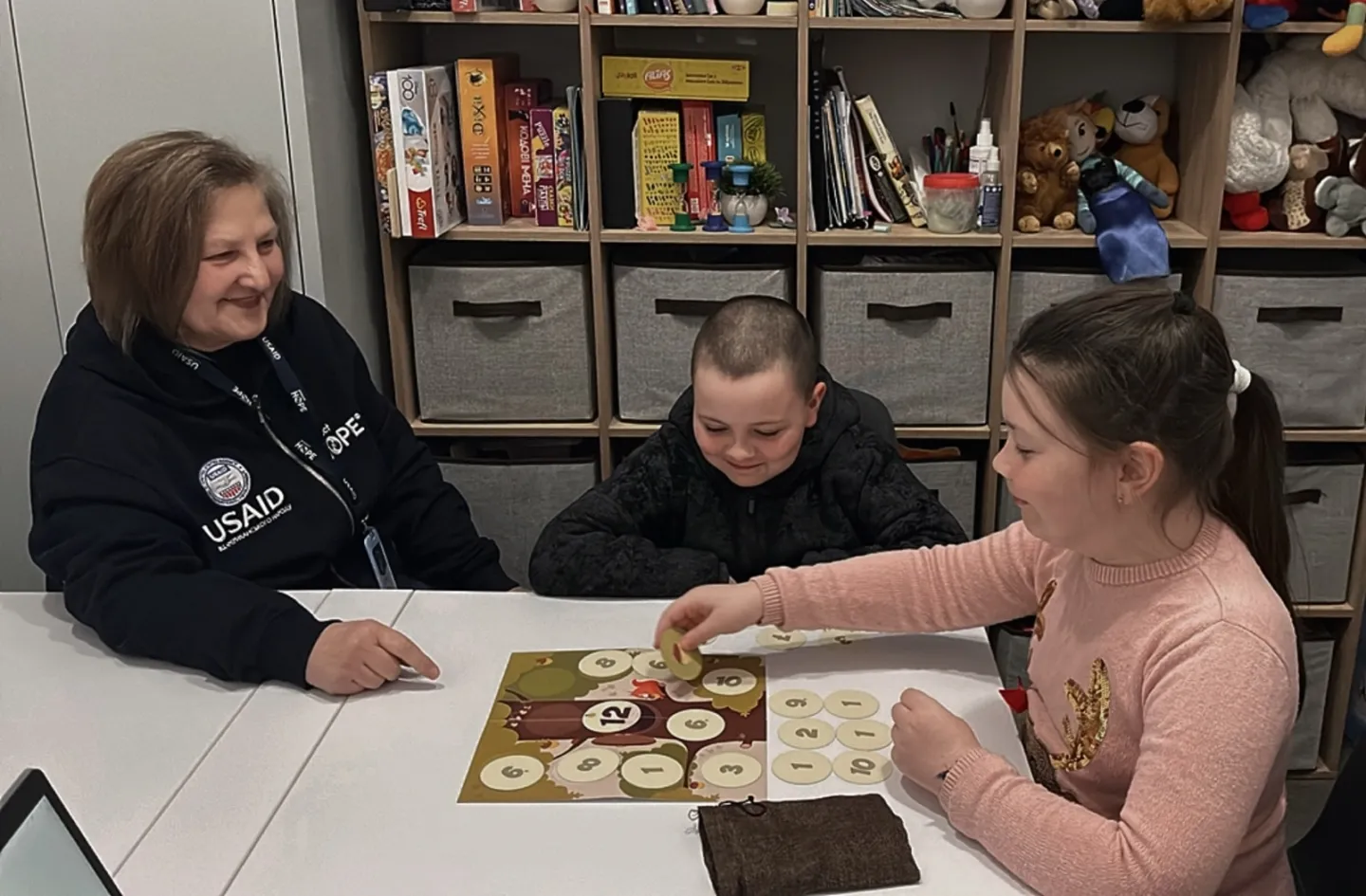
In Nikopol, where danger is constant, Olga began her work offering online consultations, then organized group sessions in bomb shelters. Today, she continues that mission through Project HOPE.
“I see the power of creating a safe space — a community — where people can regain a sense of control over their lives.”
To sustain herself, Olga leans on connection, learning, and scientific curiosity.
“In these conditions, staying grounded isn’t optional — it’s a necessity. My ability to help depends on how well I take care of myself.”
A Shared Thread of Hope
Each of these women works under the weight of war — but they carry within them light, calm, and purpose. Their words reflect a quiet strength that is changing lives, one conversation at a time. At Project HOPE, we are proud to walk this path alongside them.
This Mental Health Awareness Month, we honor their work — and the thousands of Ukrainians who, with support and care, are finding the courage to live again.



